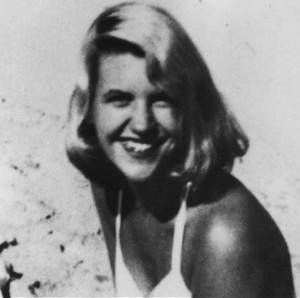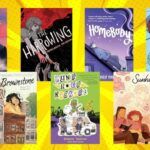
Sylvia Plath: More Than Just Her Death
 Sylvia Plath provokes a number of reactions, or so I’ve found. There are people (like myself) who love her writing, there are those who hate it, and there are those who view it as a fleeting adolescent depression-angst thing and dismiss her altogether. I’ll admit: I first read her when I was a teenager. I read The Bell Jar, and then excerpts from her diary. In college, I glanced at Ariel and The Colossus, but poetry “wasn’t my thing” back then. Most recently, I read her unabridged diaries (although in truth, I’m still working my way through the immense tome) and Johnny Panic and the Bible of Dreams, a collection of short stories, diary excerpts, and essays.
Sylvia Plath provokes a number of reactions, or so I’ve found. There are people (like myself) who love her writing, there are those who hate it, and there are those who view it as a fleeting adolescent depression-angst thing and dismiss her altogether. I’ll admit: I first read her when I was a teenager. I read The Bell Jar, and then excerpts from her diary. In college, I glanced at Ariel and The Colossus, but poetry “wasn’t my thing” back then. Most recently, I read her unabridged diaries (although in truth, I’m still working my way through the immense tome) and Johnny Panic and the Bible of Dreams, a collection of short stories, diary excerpts, and essays.
I think The Bell Jar is still relevant today, and remains one of the most harrowing books I have read about the descent into that hole of despair. Her diaries show an incredibly smart, introspective woman who struggled with the same things women struggle with now – not wanting to be seen as flighty, trying to balance personal life with professional, and the experience of marriage and motherhood.
A few months ago, I found Ariel: The Restored Edition. Ted Hughes had reordered Plath’s poems of Ariel for publication, and also left several out. Frieda, Plath and Hughes’ daughter, compiled them in their original order and added the omitted ones. When I read the book, I had to put it down several times, because I was so struck by the rage, the biting prose, the raw emotion Plath brought to the page. I had missed this as a college student, and was able to appreciate her poems now, as a 33-year-old, more than I ever could before. I had a whole new respect for her – not just as a writer, but as a woman.
But as an adult, I also have a very different view of her life and death. This past February, on the anniversary of her suicide at age 30, I realized several things: I was older than her when she died, and oh, how we’ll never know what she could have produced. I feel so young, like my life is still ahead of me, and it made me so sad that her depression, that insidious illness, killed her. There is no romanticizing about her life now – her marriage was tumultuous and troubled, toward the end she was struggling in nearly every way possible, and the end must have been very, very bleak. She could be selfish and vengeful. Simply put, she was human, like the rest of us. That can be very hard to remember when you’re a teenager and idolizing writers that touch your bloody, tender heart.
Her children were left with her legacy, and as Frieda states in Ariel: The Restored Edition, about the plaque for the house, “I did not want my mother’s death to be commemorated as if it had won an award. I wanted her life to be celebrated, the fact that she had existed, lived to the fullness of her ability, been happy and sad, tormented and ecstatic, and given birth to my brother and me. I think my mother was extraordinary in her work, and valiant in her efforts to fight the depression that dogged her throughout her life….The art was not to fall.”
Plath – Sivvy, as she was called by her family – remains one of my favorite authors. I respect her perseverance through rejection – originally, The Bell Jar was published in England to less than favorable reviews shortly before her suicide – and I wonder where confessional poetry and writing would be today if it weren’t for people like her and Sexton, among others. I appreciate the personal pain she suffered and cannot imagine the depths of it. Finally, as an adult, I see her as a whole human, a whole woman, not just the writer of one of my favorite books.











